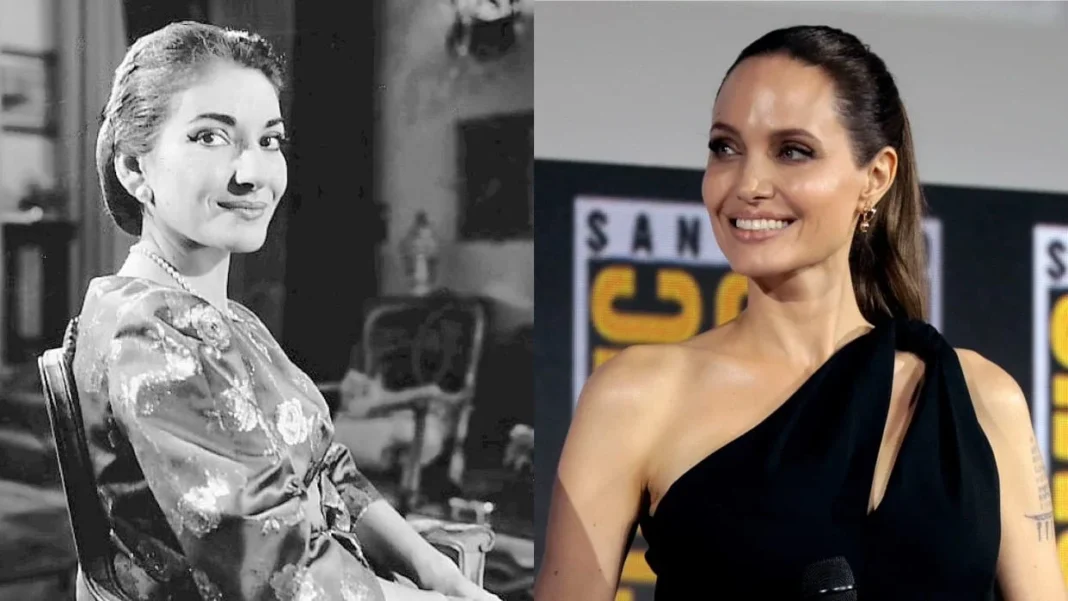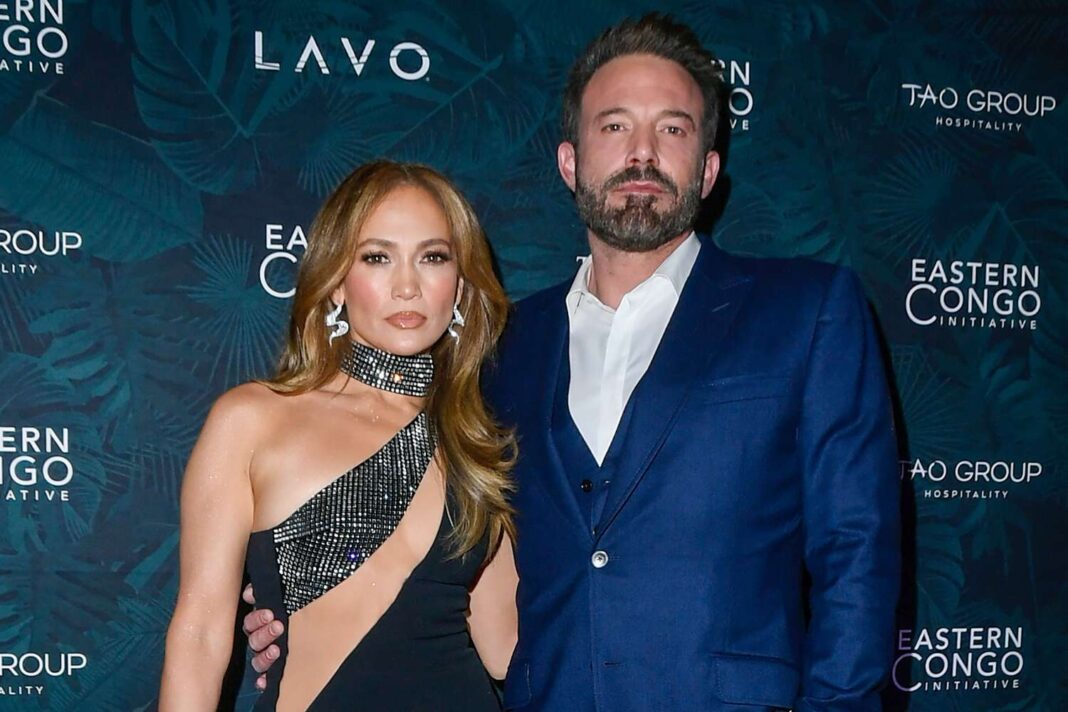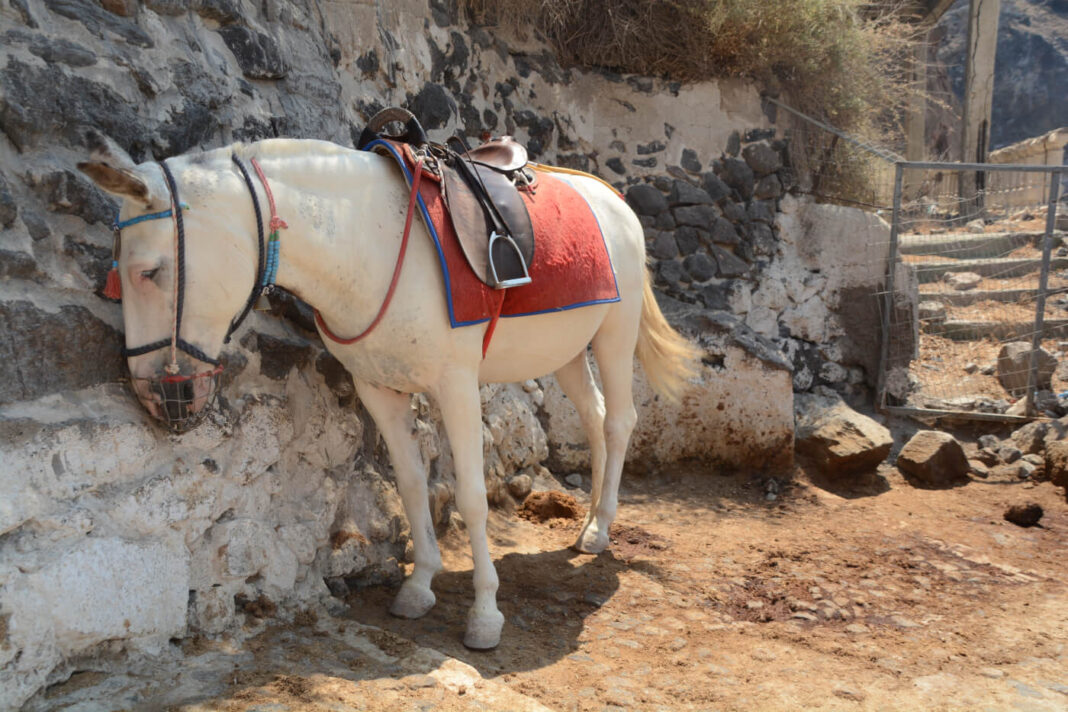The butler remembers a normal day. Just one. We even know the date: it was in 1964. There were no other normal days, apparently. Because living next to his beloved “Madame,” as he calls her in the film, meant subscribing to the extraordinary. Absolute triumphs, a few resounding failures. Ecstasy, collapse. An adored legend, an unrepeatable soprano, an all-powerful goddess. But also an insecure, fragile woman, disappointed by the one who was supposed to take care of her. A volcano of talent, strength and pain, always boiling over.
There were thousands of extraordinary days in the 53 years that the greatest diva in the history of opera spent on Earth. Her entire existence, in a certain way, was like a movie. Pablo Larraín’s Maria, presented this Thursday in competition at the Venice film festival, chooses to focus on the epilogue in the life of Maria Callas: September 1977, in Paris. When the voice that once enamored is already starting to betray. When the ovations of the theater are all in her head. When she confuses reality and fiction, perhaps because she needs to mix them. Although deep down she knows the truth: it’s over. At the end of the screening for the press, the room was filled with applause. The film, the filmmaker and its main character deserved it. Angelina Jolie has long since become an unmistakable screen presence. But on this occasion she manages to make only Callas, the only thing that matters, be noticeable on screen.
Where Maria ends, a new era may begin for Jolie. Or at least a season of award nominations. She won three consecutive Golden Globes between 1997 and 1999. But then she was nominated for worst performer for four consecutive Razzies, between 2002 and 2005. At some point, the spotlight that followed her wherever she worked began to focus on other matters. Perhaps for some failed film project. Or for her humanitarian missions with the United Nations. Or for the courage with which, in 2013, she revealed in an article in The New York Times that she had undergone a preventive double mastectomy and breast reconstruction on medical advice. For her marriage and six children with Brad Pitt —who will also go to the Mostra, days after she has left. And then there are the pending lawsuits between the two following their divorce, which include the physical abuse that Jolie claims to have suffered at the hands of her ex-husband.
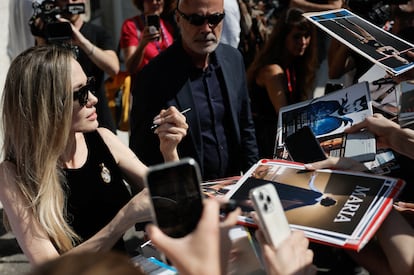
In Venice, there was only talk of art: cinema and opera. And of the return of a great actress, perhaps in her most complicated role. Certainly, the most ambitious one in more than a decade. “In recent years, I have needed to spend more time at home with my family. And I have developed a gratitude towards the fact of being an artist, of being in this creative sector,” Jolie acknowledged in the morning inside the press room, which cheered her. Although the greatest recognition came from Larraín: “Without her, this film could not have existed.”
The first question from the press immediately pointed to possible awards for Jolie. But she was more interested in another matter: “I didn’t want to disappoint this woman, her memory or the one who loved her.” To do so, she dedicated seven months of training to be able to sing opera. And she confessed that this responsibility made her nervous. Her first performance was in a small room, in front of her children, with “the doors closed.” The last, at the Scala in Milan. Quite a journey for someone who, as a young girl, listened mainly to the punk music of The Clash. The performer also learned from recordings of classes that Callas herself gave: “She said that you have to be disciplined and practice the work a lot as you have decided to. And only at the end, when you are ready, can the character and the emotion come in. I tried to do something I had never done before.”
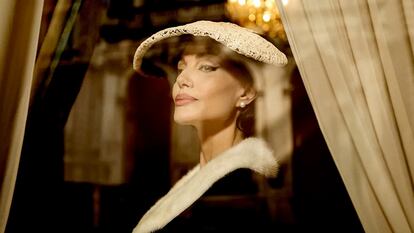
Jolie said she tried to go beyond the Callas that people are familiar with. The negative connotation she attributed to the word “diva” has changed thanks to the soprano. Asked about the points of contact between herself and her character, she declared: “There are so many things I cannot say in this room… You can imagine them. I think I share with her above all her vulnerability.”
Meanwhile, Larraín was returning home: he has become accustomed to the Venice festival. And to bringing his peculiar portrait of famous icons: Jackie Kennedy, Diana of Wales. And now, Maria Callas. He explained that he always admired her, while at the same time he was intrigued by her character and the relative scarcity of feature films about her: “How to make a film where the main character becomes a sum of the tragedies she recounted?”
The answer, once again, is to avoid the well-trodden path. The film mentions La traviata and Anne Boleyn. And, of course, that unexpected replacement in I puritani in 1949, with which she began her climb to eternity. Her ex-husband Aristotle Onassis and her troubled mother make an appearance, her abortion is mentioned, as is her struggle with her physical appearance and weight, her Greek roots and her ties to Italy. All of this is part of the legend. “You are Callas,” they repeat to her like a mantra in the film. The Chilean director wanted to investigate what it meant. Good fortune, but also condemnation.
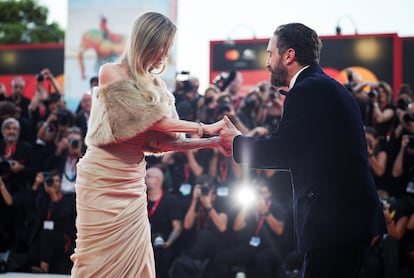
Maria tells of the loneliness of a woman surrounded by the public; the inner struggle of a fading star, the humanity and the wounds that the stages and flashes do not see. A slow decline, like the rhythm of the film. The repetition of situations can even become boring: it serves, however, to infect one with what she herself felt. The photography, the staging and the soundtrack push the spectator into Callas’ mind. No matter how hard she struggles, the fall becomes inevitable.
Just as she accepts the end, the artist sings her freest aria: “My mother forced me to sing. Onassis forbade me. Now I sing for myself.” “Happiness never produced a beautiful opera,” she says at another point. So many years giving in to grandiose stages; now she performs in the kitchen of her house and only her obedient servant applauds: “Magnificent!” But that was also part of the myth. -elpais

